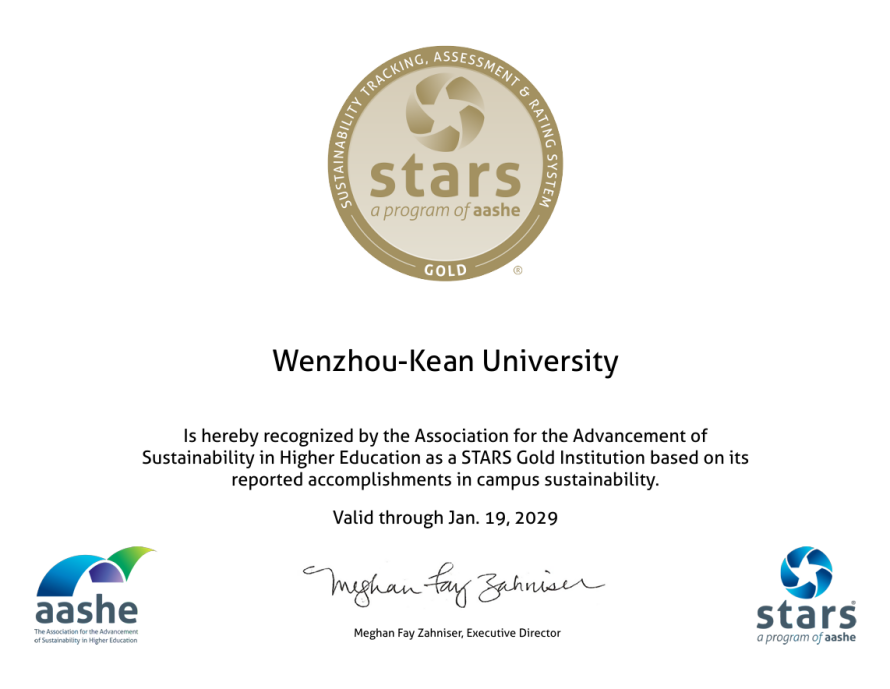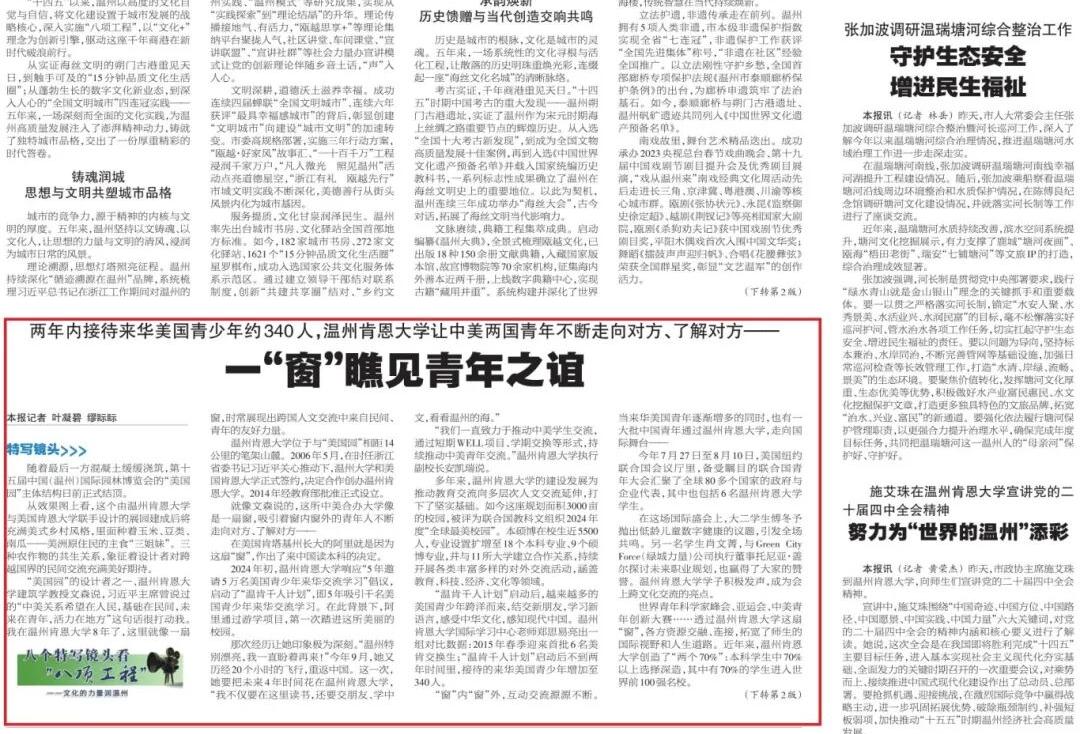Thinking about the significance of Bioscience in the post pandemic Era
In the post pandemic era, people will become more aware of how science and technology serve as lethal weapons to combat human diseases. Students become more concerned about the development of the biological sciences and are interested to choose biology as their undergraduate major. In this context, we invited Dr. Aloysius Wong, the assistant professor of biology at College of Science and Technology, to talk about what Bioscience is, the qualities that biological researchers need to possess, and the significance and future prospects of Bioscience for the development of the world.
Dr. Aloysius received his master’s degree from Cambridge University in the UK, and a doctoral degree in Bioscience from King Abdullah University of Science and Technology in Saudi Arabia. He was a postdoctoral researcher at the Institute for Integrative Biology of the Cell (I2BC) of the French National Centre for Scientific Research (CNRS). Since joining WKU, he has successfully obtained as principal investigator (PI), two external grants: one from the National Science Foundation of China (NSFC), and another from the Zhejiang Provincial National Science Foundation of China (ZJNSFC), accumulating to approximately half a million CNY. Since 2013, he has published approximately 30 articles in SCI-listed journals including Plant Cell, Molecular Plant, Development, Plant Journal and Bioinformatics. He has a US patent for a laser agriculture system. The research project “using single wavelength lamp planting plant project” has been awarded the Dow Chemical Corporation Research Award.

1. What kind of coincidence brought you to WKU?
While doing my postdoctoral training in France, I was looking around for jobs in academia as the next step of my career progression. I stumbled into a job advert by WKU and did some research on this university. What attracted me was the ambitious nature of this relatively new institution. As a young scientist looking to make the transition into a challenging role in academia, WKU’s ambition and goals resonate with what I wanted to do so I applied, and here I am. This opportunity was indeed a serendipity.
2. What do you think of the College of Science and Technology?
The College of Science and Technology is a rapidly expanding college at WKU. There have been significant investments to build new science buildings and to purchase modern state-of-the-art equipment. Besides Biology and Math, we also have a very strong Computer Science department. In addition to the existing undergraduate programs on offer, new programs such as Chemistry and Environment Science have also been launched this year. Notably, in this Fall, we will also recruit the first batch of Masters students in Biotechnology. With many motivated and committed professors and laboratory staffs, the college is highly dynamic, student-oriented, and very forward-looking. Our professors are active researchers who have all acquired rich experience from all over the world. They offer a truly global perspective to our students.
3. We know you’ve been involved in a lot of biology projects. Can you introduce your main research program?What do you think of the future of biology?
Within the Biology department at WKU, there are a number of research projects that are diverse in nature such as drug delivery, cancer biology, environmental science, plant science, bioinformatics, and antibiotic resistance.
In my own research program, I investigate if the growth of plants can manipulated and if their traits can be precisely customized using advanced artificial lights such as LEDs and lasers. From there, we will then study using functional genomics approach, their molecular strategies such as the type of genes and proteins, that enable them to grow better under the different light qualities. With this knowledge, we can in future conduct biotechnological manipulations and use these precise light combinations and recipes to grow crops and cultivate economically important plant traits for indoor horticulture applications. The overarching goal of this research program is to contribute towards sustainable agriculture and global food security. At WKU, I also study antibiotic resistance in food and health supplements, in the local environments such as the Wen-Rui Tang river, and in probiotic lozenges for oral health. The latter is particularly exciting as we have recently collaborated with colleagues from the School and Hospital of Stomatology at Wenzhou Medical University. Many of our research projects are supported by grants from the national, provincial and municipal governments. Results from these research have also been published in top journals many of which, contain students as authors. Although we are relatively young, our Biology projects are of high quality and are within rapidly emerging research areas globally.
In my opinion, Biology is a discipline that will only grow and develop as we continue to search for cures to various human diseases and seek to improve our quality of lives. The future of Biology is definitely promising. We live in a time where science and medicine has made huge progress. The success in curbing many infectious diseases, has allowed us to enjoy great prosperity in other areas of our lives although sometimes we may become complacent and overlook the contributions of science in our lives. The significance of Biology and medical sciences become even more apparent especially in the current coronavirus pandemic where scientists worldwide are racing against time to understand the behavior of this virus in order to develop an effective vaccine. Many economic, sports, arts and cultural activities, depend on the success of science so, Biology has been, is, and will continue to be, deeply intertwined in our lives.
4. Can you explain the significance of Biotechnology/ Bioscience to the world’s development in practical terms?
In addition to finding cures to human diseases, Biology or rather Biotechnology, also improves our quality of life with the development of smarter diagnostic tools and health tracking devises. In future, personalized medicine will help prevent a disease even before the symptoms appear while AI predictive algorithms will allow micromanagement of every aspects of our lives.
Beyond human health and diseases, Biology also allows us to protect the environment through bioremediation efforts such as using genetically engineered microbes to clean up of oil spills and microplastics in the oceans, conserve and breed endangered species of wild lives, reduce the rate of global warming, and contribute to global food security through the development of crops which are more tolerant to environmental stresses and diseases. In other words, the global impact and practical applications of Biology is far-reaching.
5. What kind of qualifications do you look for in people who want to join this field, and what advice do you have for students considering a career in Bioscience?
In the current climate and perhaps also in the near future, students considering a career in academia will need a PhD and a strong research output as well as several years of training as a postdoctoral researcher. For those who wish to join the industry, a Masters degree is normally sufficient but a PhD degree will definitely enhance the prospect of career development, promotion and overall progression. Especially for those wishing to pursue a career in the industry, I would also encourage a second postgraduate degree in another field such as business, management or law, or choose a hybrid postgraduate degree such as the Masters degree in Bioscience Enterprise offered by Cambridge University in the UK. There are also government and non-profit organizations that offer exciting and rewarding Bioscience-related careers.
6. What do you hope students will learn from your classes?
I hope that students can develop creative, analytical and independent thinking abilities. I wish students can question and challenge existing knowledge and biological concepts, and not just accept them just because these information are found in the textbooks.
7. Can you talk about the possibility and necessity of undergraduates doing scientific research?
In an increasingly competitive environment, experimental skills will be an added advantage for those who wish to apply to graduate schools. It is fair to say that almost everyone who applies to top schools has good grades so research experience will allow undergraduate students to stand out among a pool of applicants with equally good GPAs. It is necessary for undergraduate students to do research. Regarding the possibility, it is true that undergraduate students have fewer opportunities to do research compared to Masters and PhD students. Undergraduate students are also normally burdened by heavy load of classes. But students can seek research opportunities during the summer holidays whether in our labs at WKU or at another institution, or even in the industry such as in pharmaceutical companies and hospitals. At WKU, the relatively small class size actually provides students with numerous research opportunities which are not normally offered in schools with large enrollments. So, this can be considered as our strength. While challenging, it is not impossible to gain valuable research experience at the undergraduate level. Students just need to be proactive and motivated.
Writer:Yoki Chen
- Wenzhou-Kean University Spearheading Sustainability in Higher Education in Asia and in China, Awarded the AASHE STARS Gold-Certified in Sustainability

- Media Report | Wenzhou Daily: A Window into Friendship Between Chinese and U.S. Youths Wenzhou-Kean University Welcomes 340 Young Americans in Two Years

- WKU Student wins first prize in a national English speech contest: What is his answer to the value of boredom?


